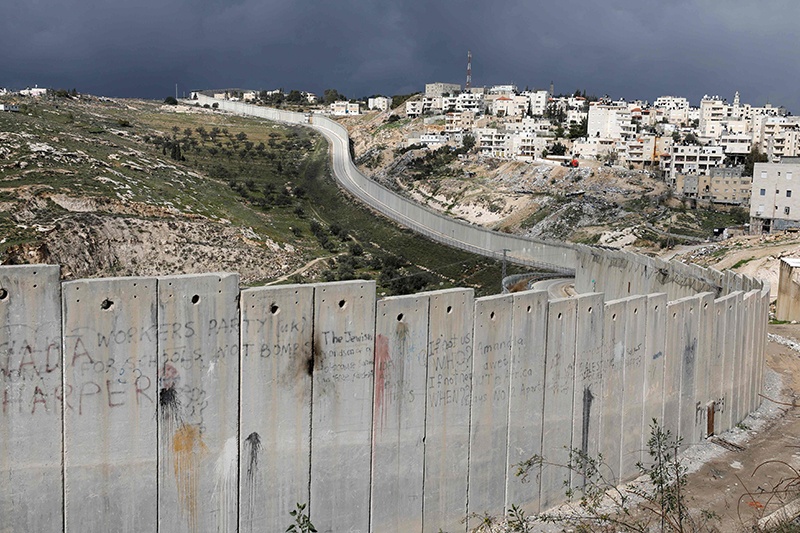
ABU DIS: Abu Dis, the capital of an independent Palestinian state? For Donald Trump maybe, but residents of the run-down neighborhood on the outskirts of Jerusalem are skeptical. On Tuesday the US President outlined his proposals for a Middle East peace deal, welcomed by rightwing Israelis and mockingly dubbed the "deal of the century" by Palestinians. The plan gives Israel full control of the disputed city of Jerusalem, including the predominantly Arab eastern part that Palestinians have long claimed as the capital of their future state.
Instead, it would allow them a capital on the outskirts of the city, beyond a looming concrete barrier erected by Israel during the bloody second Palestinian intifada in the early 2000s. Trump's plan proposes the cramped district of Abu Dis as a capital, which it suggests could be renamed "Al-Quds" (the holy) - the Arabic name for Jerusalem.
But Jerusalem itself, with its iconic Muslim and Christian holy sites, is a powerful symbol of national and religious identity. For many Palestinians, giving it up is unthinkable. "Abu Dis can't be a capital," said Yara, a Jerusalem resident who crosses to Abu Dis several times a week to study at the local university. "Jerusalem should be a city that everyone can reach."
'I prefer Jerusalem'
The journey from the holy places of Jerusalem's Old City to Abu Dis should take only a few minutes by car, slaloming between busloads of tourists who visit the city. But at a roundabout, the GPS gives up and a metres-high concrete wall blocks the way. Getting through involves zigzagging up and down hills, finding a highway, crossing a checkpoint and a village and passing a car cemetery-about a 30-minute drive.
From their homes on the far side of the wall, the residents of Abu Dis can see the Dome of the Rock in the Al-Aqsa Mosque compound, the third holiest site in Islam. In the shade of the wall, covered in pro-Palestinian graffiti, 43-year-old street vendor Mohammed Hermas struggled to see how his neighborhood could become a capital. "I really don't see what I could get out of it, whether the capital is in Jerusalem or here," he said of the Trump plan, tending to falafel furiously bubbling in a vat of oil. "There's no vision for our future."
Sami, a young father with ripped jeans, was more open to compromise. "The state and religion must be separated. As long as we can pray in Al-Aqsa, the capital can be elsewhere. But yes, I prefer Jerusalem," he added. He added that he wants to be able to go and work inside Israel to be able to earn more for his family. "Here you work for 80 shekels a day (€21), but in Israel you can make 400 (€105) for the same work."
Parliament of Abu Dis
Palestinian leaders immediately rejected Trump's plan for multiple reasons, most prominently the recognition of all Jerusalem as Israel's "indivisible capital". But the notion of Abu Dis as the capital is not strictly new. The idea it could be a trade-off for losing east Jerusalem was floated in multiple negotiations in recent decades. The Palestinian Authority once even began building a possible parliament building in Abu Dis, but the Palestinian legislature was ultimately established in the West Bank city of Ramallah.
Today, the unfinished sand-colored building sits a few metres from the concrete wall. Before the wall was built, the residents of Abu Dis often worked or studied in Jerusalem. From his office in the local library of Abu Dis, where he deals with archives of the inheritances of Jerusalem families, Khaled Elyan can see both the unfinished parliament and, in the distance, the Dome of the Rock. "Abu Dis is part of Jerusalem, it's a district of the city - it's not an independent city. Abu Dis can't be the capital," he said. "The wall has isolated us. The goal was to separate us from Jerusalem," he said. "What Trump and (Israeli Prime Minister Benjamin) Netanyahu are selling is an illusion." - AFP

